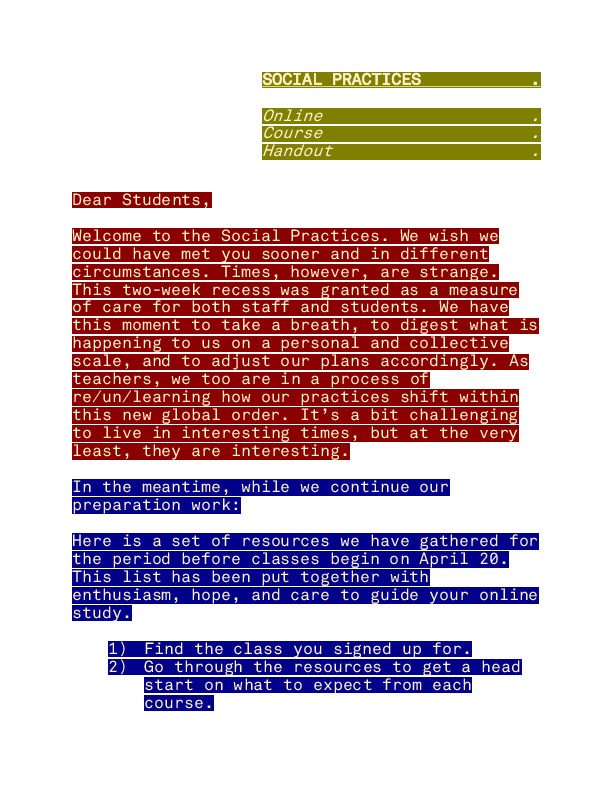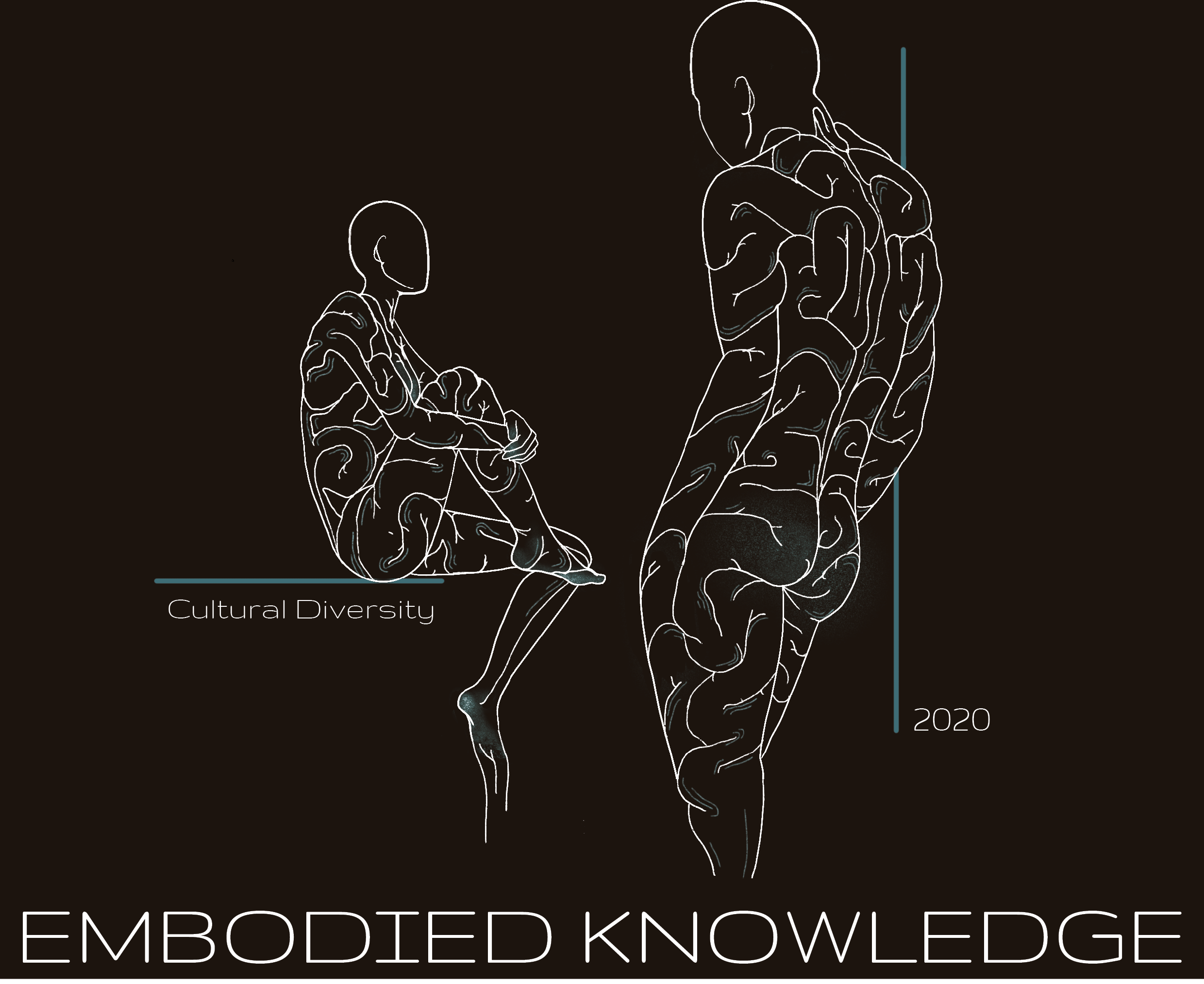Difference between revisions of "Class Archives"
(→Year 4) |
|||
| Line 29: | Line 29: | ||
==== Year 4 ==== | ==== Year 4 ==== | ||
https://www.poweroflistening.nl/ | https://www.poweroflistening.nl/ | ||
| + | <b>Decolonial Listening</b> | ||
| + | |||
| + | <i>If you assume that your view is the only view, or the universal value, or the contemporary view, or the view that is in fashion, or the latest view, then you cannot be in the disposition of listening or be capable of listening to what goes beyond your framework of understanding. So, in this sense, listening becomes an enormous challenge: how to humble your position. </i> | ||
| + | |||
| + | Rolando Vázquez | ||
| + | |||
| + | Decolonial Listening can be the practice of humbling yourself in engaging with others and the world, in whatever form that takes. Humbling your own knowledge and self to make space for listening to one another, to what surrounds us. Listening in this way, we work towards a more ethical relationship to the world. | ||
| + | |||
| + | We will meditate on how some knowledges and knowledges practices are imposed, acknowledging that there are dominant narratives and stories that impact and somehow take up space over others. Decolonial listening explores and attempts to unearth those knowledges that have been overlooked, silenced and disregarded. | ||
| + | |||
| + | We will interrogate the power structures, their languages, and the relations built within them; the role of power in (re)producing violence, domination and marginalization. We will engage with theoretical ideas that disrupt or dismantle the infrastructure of power, concentrating on how various ways of listening are vital in accepting, rejecting, or refusing power. | ||
| + | |||
[[File:Powerplay4.png]] | [[File:Powerplay4.png]] | ||
Revision as of 20:17, 3 February 2021
Contents
2020-2021
Course Manuals
Years 3–4
Under construction
Year 2
Course begins in April 2021. In the meantime, you can check our manual from last year.
˚˚˚ cL1CK ˚˚˚˚ h€r3 ˚˚˚˚
Cultural Diversity
Year 4
https://cultural-diversity-class.hotglue.me/
Embodied Knowledge(s)
Ideas are not something generated through distance but follow the thinking of Sara Ahmed (2017) in that they arise from our involvement in a world that can leave us feeling a variety of things from bewilderment, confusion, through to joy and happiness.
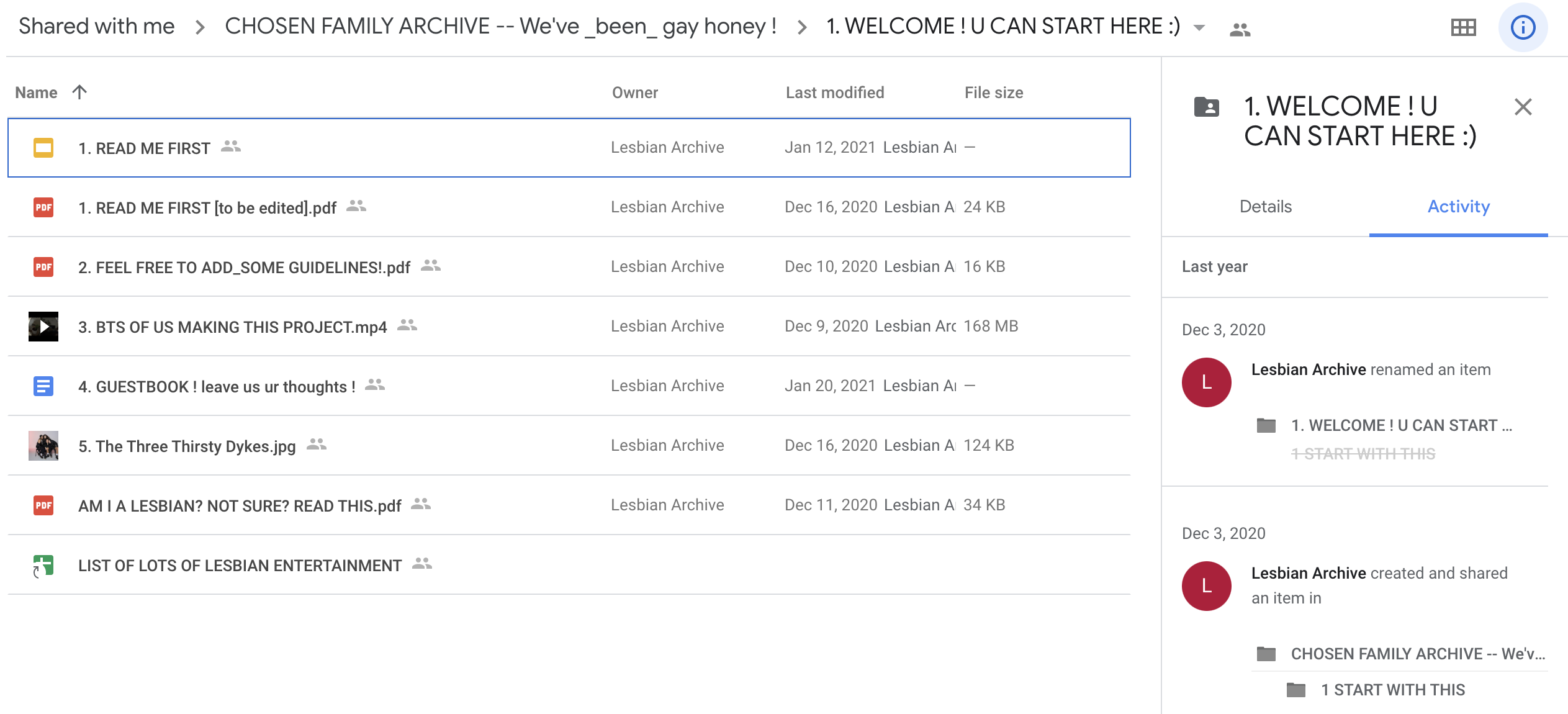 The body “knows” things and how to do things and can enable us to work on our intuition, with our sense that something is not quite right as the starting point for thinking critically. Without the bodily, we would not be able to organize ourselves in our environment.
The body “knows” things and how to do things and can enable us to work on our intuition, with our sense that something is not quite right as the starting point for thinking critically. Without the bodily, we would not be able to organize ourselves in our environment.
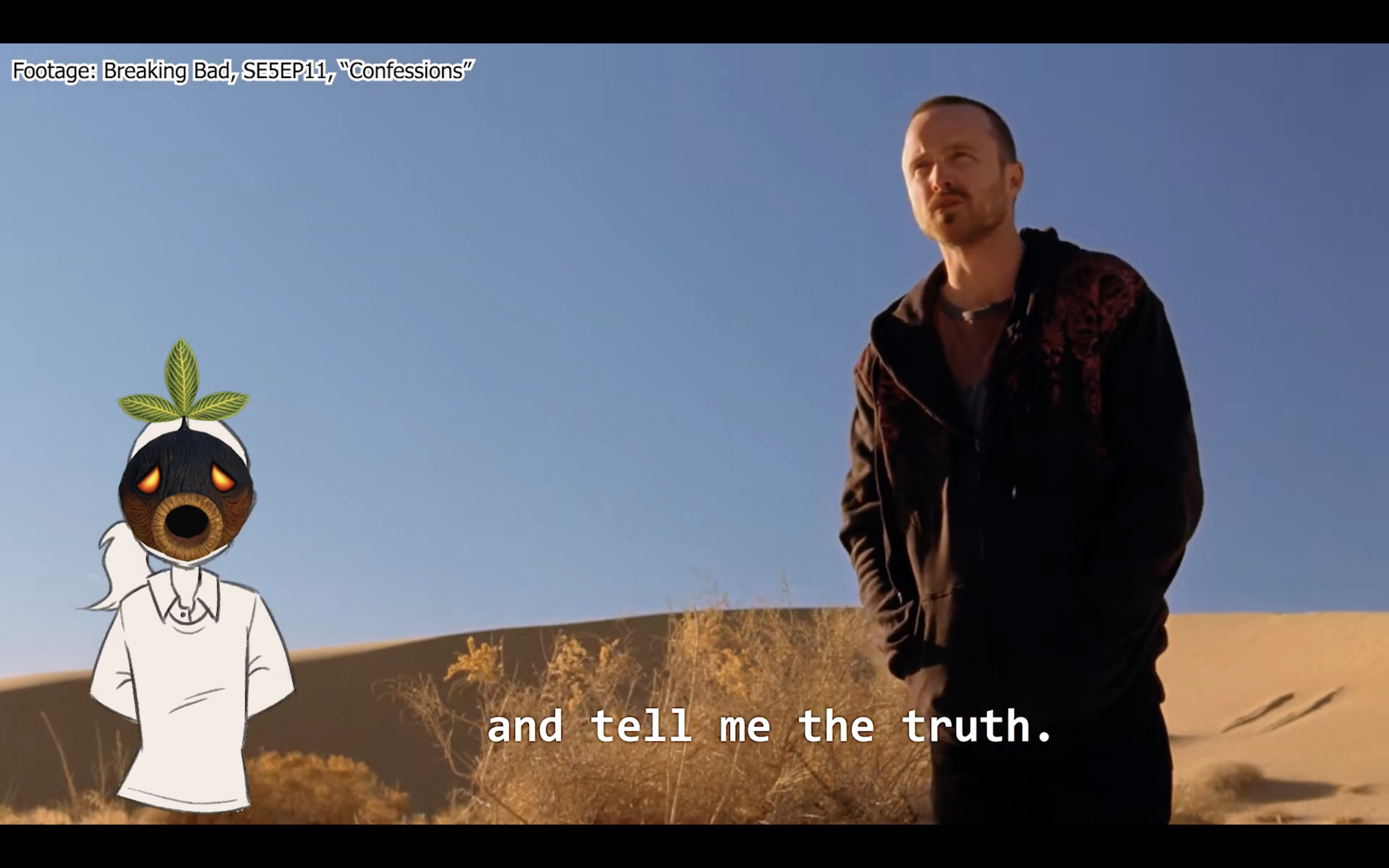 We would not know where/what we are, what/how we are learning or how we can communicate about our feelings, experiences and modes of being. Our bodies are continually in a process of becoming. With what lenses do we gaze on our bodies and those of others?
We would not know where/what we are, what/how we are learning or how we can communicate about our feelings, experiences and modes of being. Our bodies are continually in a process of becoming. With what lenses do we gaze on our bodies and those of others?
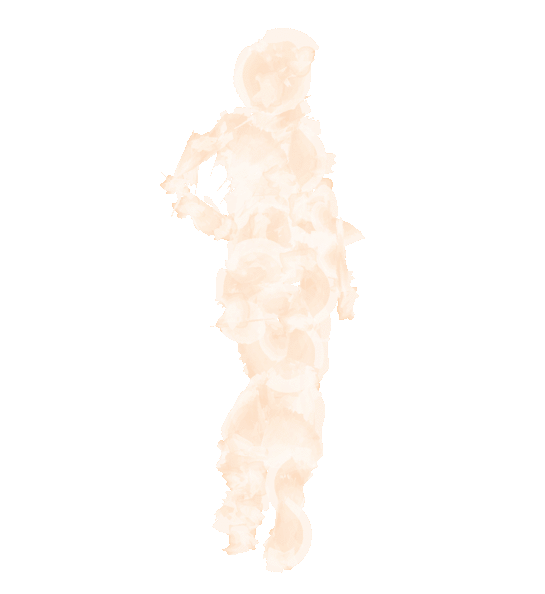
Year 3
https://p3culturaldiversity2020.hotglue.me/
Powerplay
Year 4
https://www.poweroflistening.nl/
Decolonial Listening
If you assume that your view is the only view, or the universal value, or the contemporary view, or the view that is in fashion, or the latest view, then you cannot be in the disposition of listening or be capable of listening to what goes beyond your framework of understanding. So, in this sense, listening becomes an enormous challenge: how to humble your position.
Rolando Vázquez
Decolonial Listening can be the practice of humbling yourself in engaging with others and the world, in whatever form that takes. Humbling your own knowledge and self to make space for listening to one another, to what surrounds us. Listening in this way, we work towards a more ethical relationship to the world.
We will meditate on how some knowledges and knowledges practices are imposed, acknowledging that there are dominant narratives and stories that impact and somehow take up space over others. Decolonial listening explores and attempts to unearth those knowledges that have been overlooked, silenced and disregarded.
We will interrogate the power structures, their languages, and the relations built within them; the role of power in (re)producing violence, domination and marginalization. We will engage with theoretical ideas that disrupt or dismantle the infrastructure of power, concentrating on how various ways of listening are vital in accepting, rejecting, or refusing power.
Year 3
https://recordingviolence2020.hotglue.me/
New Earth
Year 4
https://www.youtube.com/watch?v=tpf2VVKll1Y
Documentation of online public presentation
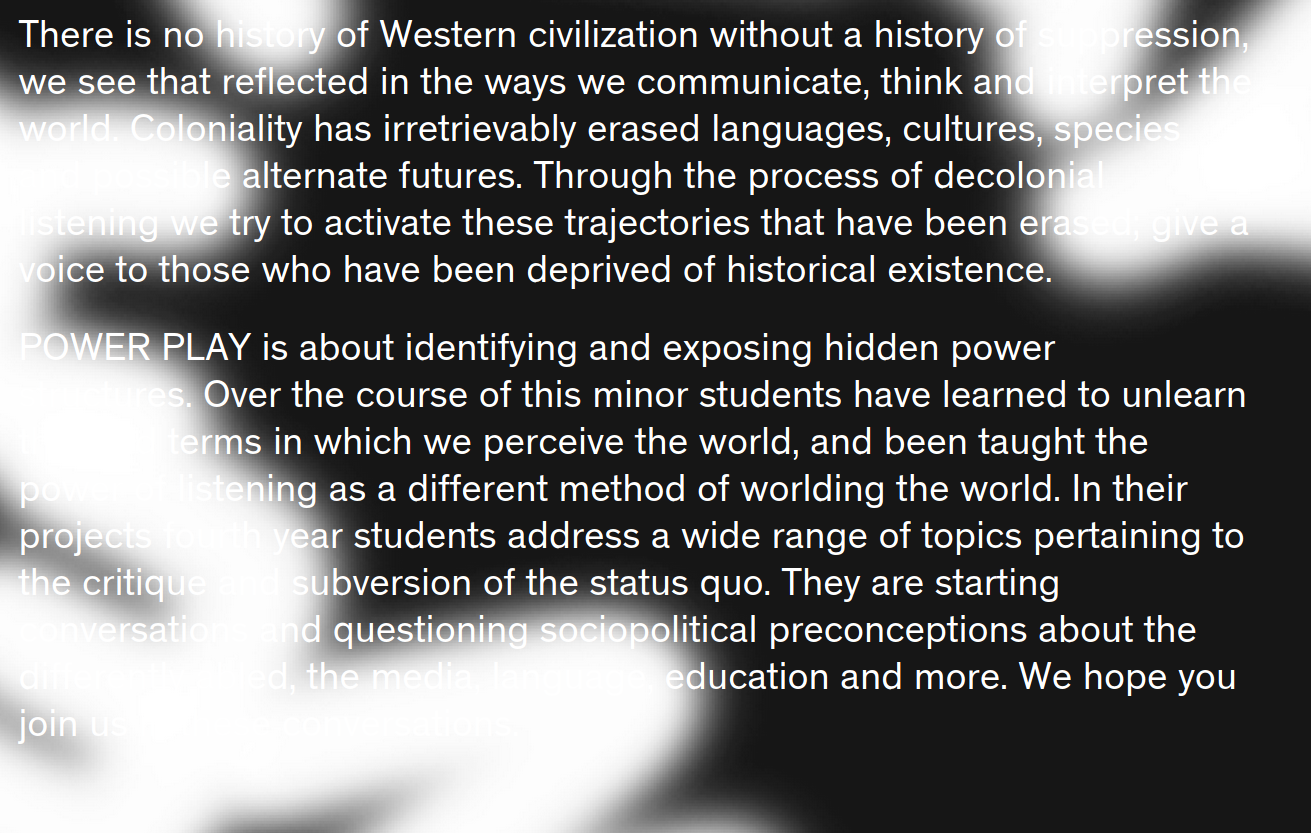
Year 3
https://2021.mywdka.nl/WDKP31SPNE/
For WdKA and Hogeschool Rotterdam users only, not a public archive

